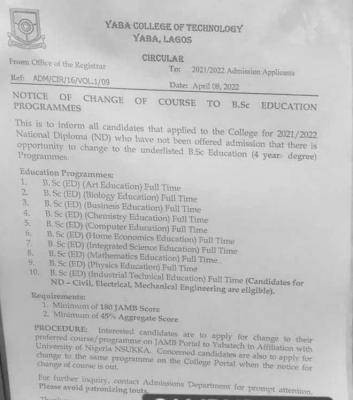
“You educate a man; you educate a man. You educate a woman; you educate a generation.”– Brigham Young
This is one of my favourite quotes and one that holds true today and in every aspects of driving growth and progress for women and men around the globe. Sadly, this maxim is one that many governments, including Nigeria, have not striven to achieve. Last Saturday, March 8th marked the International Women’s Day.
The day set aside to celebrate the social, political and economic achievements of women. I attended several events in London and was very impressed of the individual and collective accounts of women’s achievement and cooperation. They did in fact, inspired many by their accounts of their bravery, determination and zeal to succeed.
I read that Patience took to the rostrum to talk to the masses on international women’s day. And in her speech, she described herself as “a passionate advocate of gender inclusion” and that she pledged to continue to work with great commitment with other African First Ladies across the continent to promote gender equity, especially in her capacity as the President of the African First Ladies Peace Mission.
Here we go again! African first ladies peace mission! It rears its ugly head, smacks so much of opportunism rather than a genuine determination to address the glaringly obvious and disparate disparity and inequality of our women folks in Nigeria. We, and I mean US! Men and women alike have to facilitate the change in the way we raise our children and treat our women. They do say the first classroom is the family. Children learn lot by watching and they will act it out. The nation does not need a fancy pink elephant to enable us to make these changes. What we need is a change in our psyche that puts fairness and civility in the heart of how we treat one another.
Similar Posts:
We need to value all our children, regardless of gender and provide them with the opportunity of education, advance equality of opportunities, reduce discrimination in our homes, institutions and establishments.
I know it is a tall order but we need to strive to make our country better, not throw our hands up and give up because we are determined that it cannot be done.
Doing nothing is not an option and it will ultimately be our own undoing. It sounds dramatic, doesn’t it? Tell me, please what are the options and don’t tell; nothing.
We have to advocate for the next generation and our passivity to move the agenda forward tantamount to negligence and abandonment of our duty as parents, citizens and as Africans. Call me a cynic, but the dame seems to be inferring that the First ladies peace mission will and can do this. I disagree. There is no need for aggrandizing the role and looking for a personalised legacy here. The dame in her address stated that “Now is the time to listen to the voices of women, to fully engage them and to make women’s empowerment and gender equity a priority.”
Someone tell this fragrant lady that that boat has sailed and she is not in tune with what is going on with the average Nigerian women. There is so much fluff in her sound bites and not enough substance.
The time to act is not now; the time to act was yesterday that is the urgency of the matter. When someone tells us, that unless we succumb to their demands, they will not or cannot make changes. We should be wary of such people. What have they done in the last couple of years when they had the opportunity? If they have not made any tangible changes, what are the chances they would do the second time around?
GEJ and Patience please take note; you missed the opportunity to use the office for the better. What should have been happening is that, the government and its officers should be encouraging advocacy for women’s advancement everywhere in every way. The task should not be for an unelected figure head, it should be left to specialists and a priority by the administration. It seems that they got their priorities wrong in terms of gender inequality. Only when it is tackled systematically and well-resourced that that the prominence of women and real change can take place.
This is the time to depoliticize, time to realise that if we ignore the advancement of majority of women(not the privilege few),we sign off our country to the doldrums of repression, poverty and low standing in league of advance nations.
It is no point putting up a show and pontificating with sound bites. We should not relegate our duties to the self-appointed “saviours” of the cause. We, as individuals should serve and strive to make the changes. Afterall, we are what Nigeria is waiting for.
So the time for changes depends on all and not the elite few. We can no longer blame our misfortunes on a government, on our colonial past, on archaic establishments nor the continent. And comparing ourselves to poorly performing countries is not clever. We should strive to be better than our selves. The problem is we have very low expectations of ourselves and each other.
The facts are there for all to see: The World Bank stated that in Nigeria, if young Nigerian women had the same employment rates as young Nigerian men, they would add 13.9 billion Naira in annual GDP. So we have to encourage our young women to live up to their full potential. So the challenge for Nigeria is ; how to change the lives of Nigeria’s 80.2 million women and girls who have a reduced life chances. As the real and depressing fact is that one-quarter to one-half of girls in developing counties become mothers before age 18 according to the United Nations Population Fund. The focus should therefore be on health and human rights of girls and women.
In a statement, the Programme Officer, Development Communications, DevComs, Network disclosed that, “in spite of the increasing participation of women in government, it is worrisome that the rate of violence against women and the persistent deaths of women due to complications of pregnancies and childbirth still remain a major debacle for many women as many African countries are leaving no stone unturned in their quest to reduce maternal deaths”.
What have Nigeria done despite the pledge along with over 188 other countries vowed to reduce by half her maternal mortality rate by the year 2015.The government in 2001, pledged to set a target of at least 15percent of their annual budget to improve the health sector. This has not happened. In 2013, Nigeria’s budget was 9.4precent less than the recommended rate agreed upon. And the country’s health budget during the period was 5.6precent as against the recommended 15percent suggested by the African Leaders.” (Vanguard)



